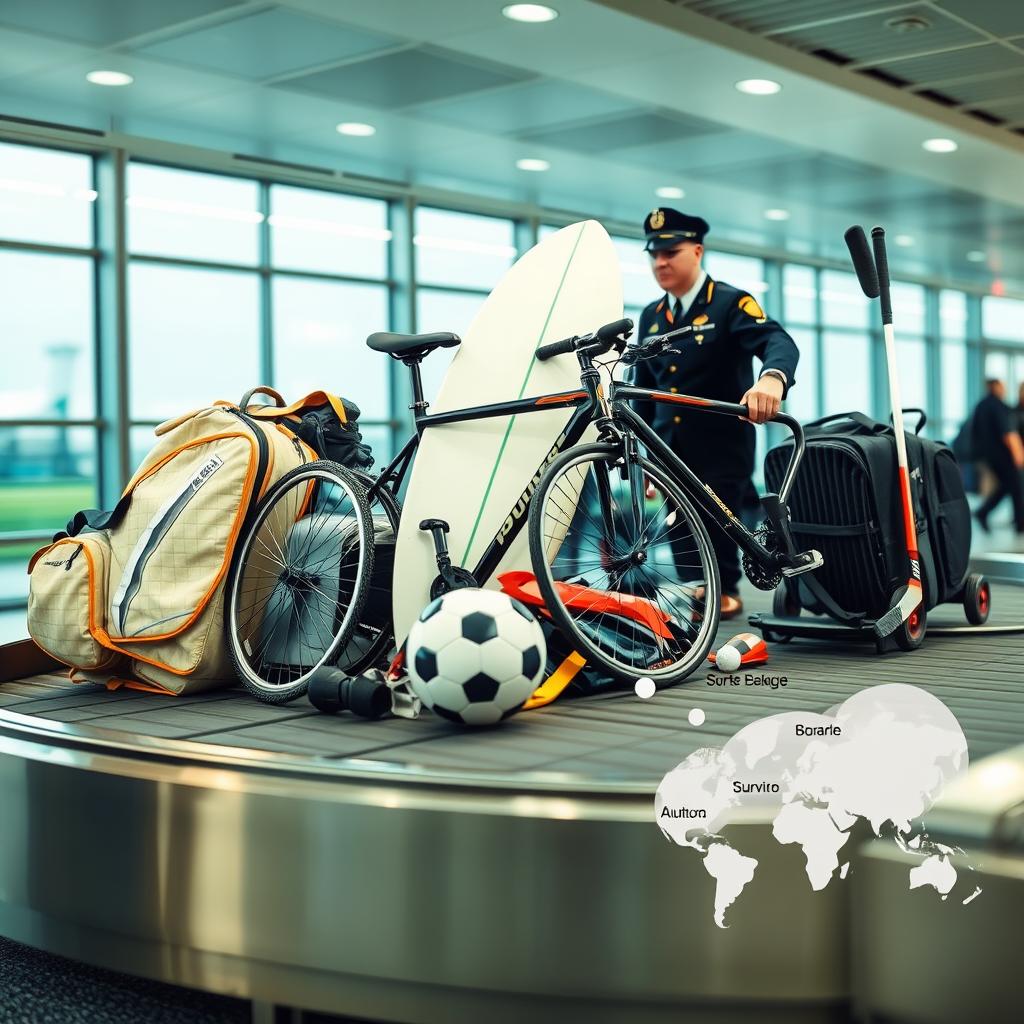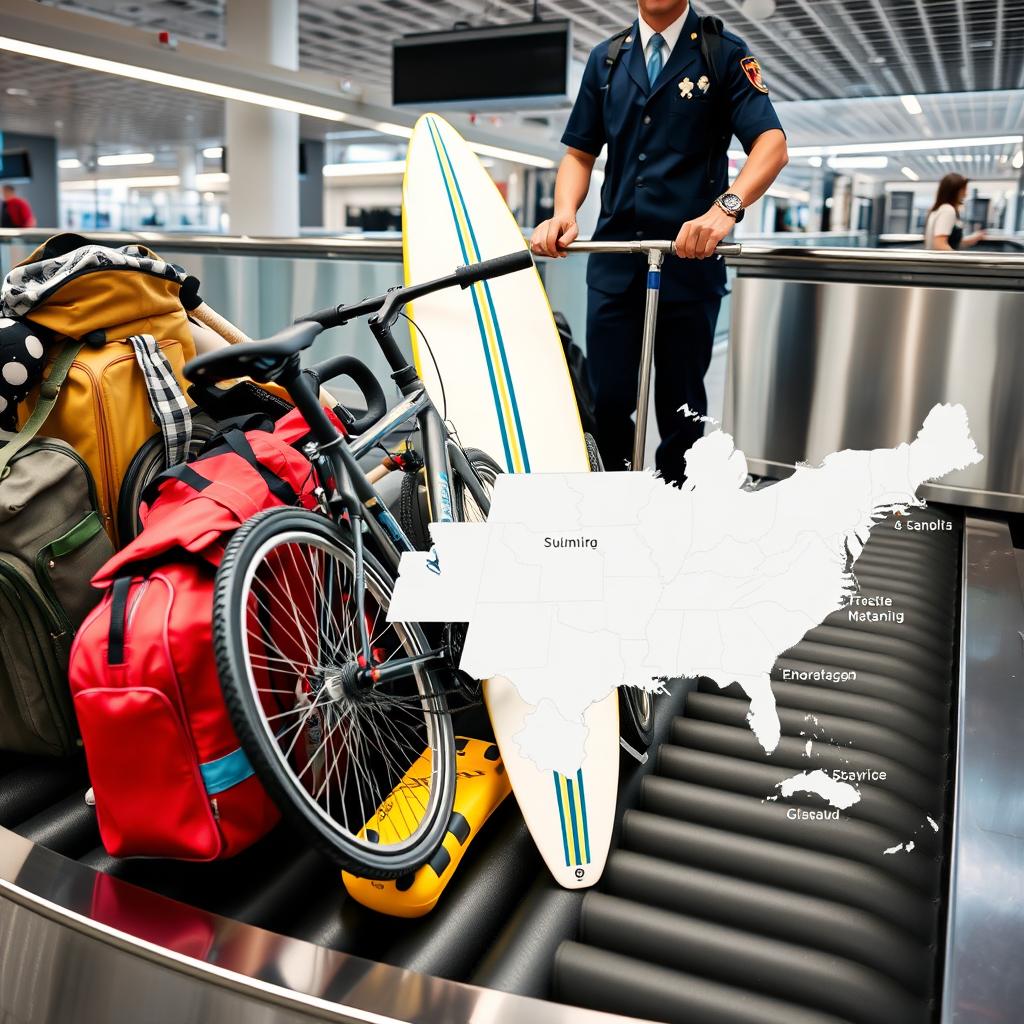Transporting bulky or delicate sports gear (bikes, golf clubs, skis, surfboards, etc.) adds complexity to baggage operations. Most airlines treat sports equipment as checked baggage or special cargo, often counting it against the standard allowance (or applying excess-bag fees). Policies vary widely: some carriers are lenient, others charge extra or require advance notice.
- Airline policies: For example, South African Airways allows most common sports items within the normal baggage allowance, charging only for weight/size overage (flysaa.com). But very large items (windsurfers, canoes, gliders over 200 cm) must be shipped as cargo. Ethiopian Airlines provides a detailed rate card: a tennis/squash rackets bag costs $80 (ethiopianairlines.com), while a regular bicycle costs $100 (ethiopianairlines.com). WestJet (Canada) treats a bicycle as one checked item but adds a CAD 50 handling fee (westjet.com). By contrast, Hawaiian Airlines (USA) made surfboards, bikes and golf clubs part of the free allowance on all flights (no extra fee) (airwaysmag.com). Other carriers may limit weight (e.g. max 23–32 kg per bag) or require rigid cases.
- Packing and procedures: Travelers are advised to pack equipment securely. Hard-shell cases are strongly recommended for fragile gear (racquets, skateboards, telescopes). Items like hockey sticks, archery bows, windsurfing sails should be protected or disassembled. Batteries (as in e-bikes or motorized gear) are often prohibited. Airlines typically require bulky sports bags to be checked at the counter. Advance notice or a reservation code (“booking special baggage”) is sometimes needed for very large items. Always verify with your carrier’s sports baggage rules before flying.
- Examples & experiences: Many passengers report lost or damaged gear if not properly protected. Professionals often travel with multiple racquets and pay for extra bags. As one illustration, Hawaiian’s new policy highlights how carriers are adapting to customers’ hobbies: “Hawaiian Airlines has begun accepting surfboards, bicycles, and other sports equipment… as standard checked baggage… meaning no extra fees” (airwaysmag.com). In contrast, a Canadian tourist on WestJet found his bike incurred multiple fees despite careful packing (westjet.com). These stories underscore that costs and care vary by airline.
- Key guidelines: Check airline limits for your specific gear (size/weight rules) and book any required sports baggage in advance. Pack items in protective cases, deflate tires if needed, and pad delicate parts. Consider insuring expensive equipment, since carriers’ liability is limited (e.g. ~$2,000 per passenger). While many airlines aim to accommodate sports equipment as part of the baggage allowance, be prepared for possible extra fees or cargo handling for oversized items (flysaa.comwestjet.com)



